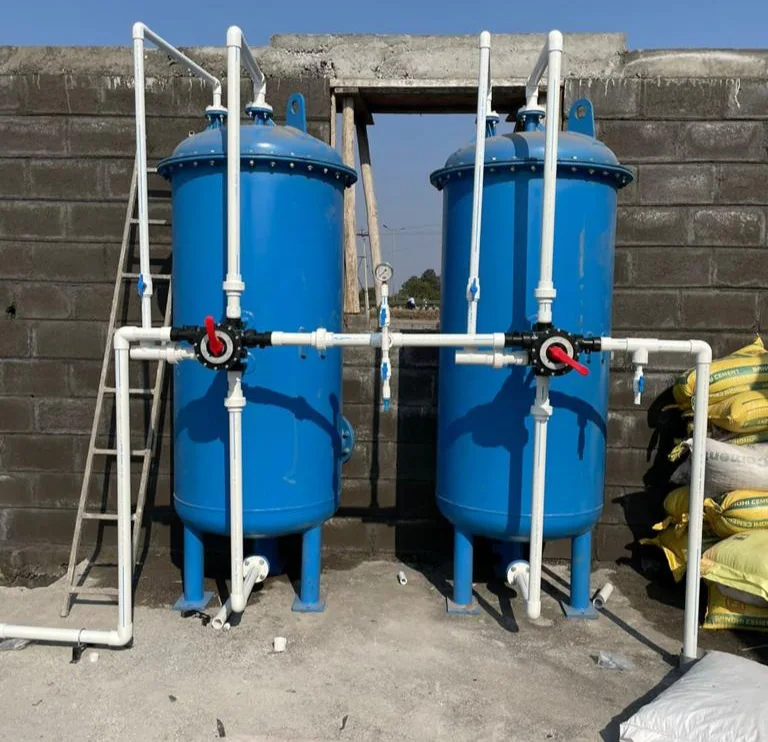
SEWAGE TREATMENT PLANT
Sewage Treatment involves removing contaminants from waste water, primarily from residential municipal, hotels, industrials hospitals, and commercial buildings.
All of them generate sewage that contains toxic elements that are harmful to both humans and the environment.
Our methodology of treatment involves physical, chemical, and biological processes that result in environmentally safe water. Tuned to ensure the highest results with ease of operation and maintenance.

TECHNOLOGY
Our Technologies include the following systems to ensure the highest standards of purification.
- Moving Bed Bio Reactor (MBBR)
- Sequential Batch Reactor (SBR)
- Membrane Bio-Reactor (MBR)

Work Executed at:
JSS Multi-Speciality, Hospital, Vijaypuru
Applications
- Commercial Complex
- Residential Apartments
- Residential Layouts
- IT Parks
- Residential Schools & Colleges
- Resort & Hotels
- Municipal
- Hospitality
- And other Waste Water Generating Sources.

EFFLUENT TREATMENT PLANT
ETP (Effluent Treatment Plant) is a process design for treating the industrial waste water for its reuse or safe disposal to the environment. Industrial effluents contain various parameters, depending on the type of industry. Some effluents contain oils and grease, higher COD:BOD ratio, ammonia nitrogen, methanol, color, and some contain toxic materials (e.g., cyanide), higher TDS. Effluents from food and beverage factories contain degradable organic pollutants.
Since industrial waste water contains a diversity of impurities and therefore specific treatment technology called ETP is required. The ETP Plant works at various levels and involves various physical, chemical, biological and membrane processes to treat waste water from different industrial sectors. like chemicals, drugs, pharmaceutical, refineries, dairy, ready mix plants, Sugar Industries.
Applications
- Chemical Industries
- Pharmaceutical Industries
- Sugar factories,
- Dairy, Refineries, Food Prepossessing
- Pulp & Paper, Textile, etc
BENEFITS
- To clean industry effluent and recycle it for further use.
- To reduce the usage of fresh/potable water in Industries.
- To cut expenditure on water procurement.
- To meet the Standards for emission or discharge of environmental pollutants from various Industries set by the Government and avoid hefty penalties.
- To safeguard environment against pollution and contribute in sustainable development
